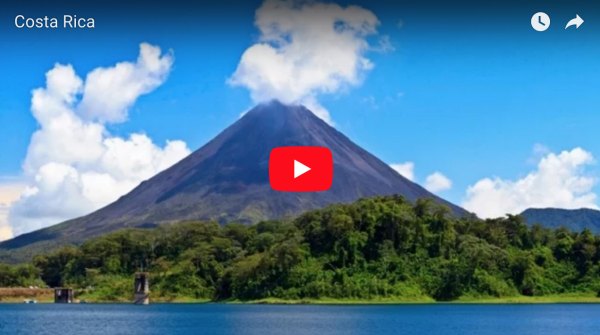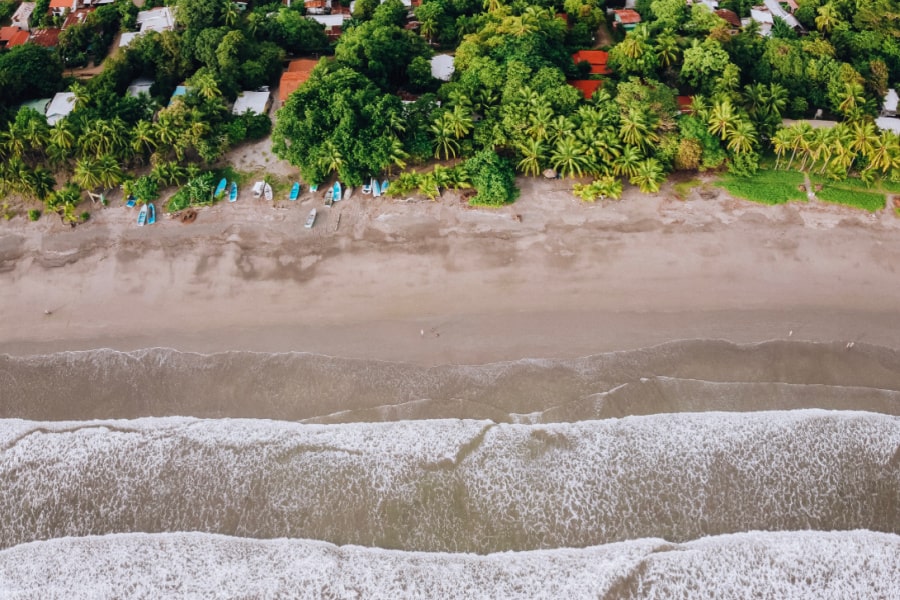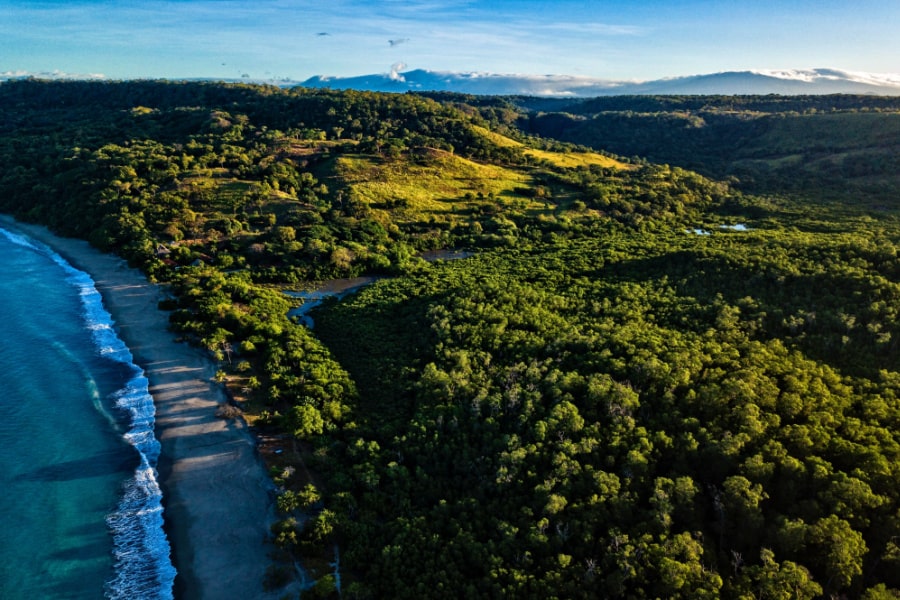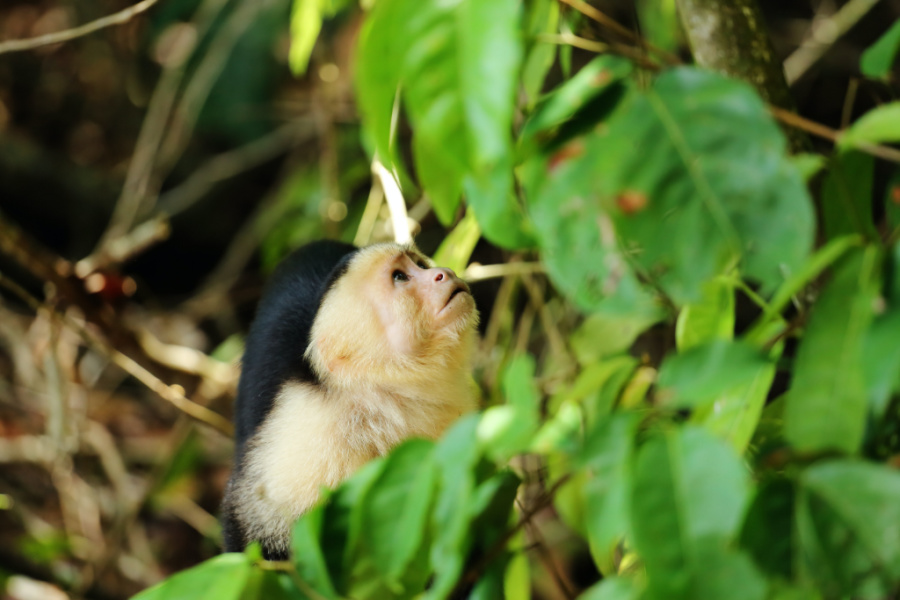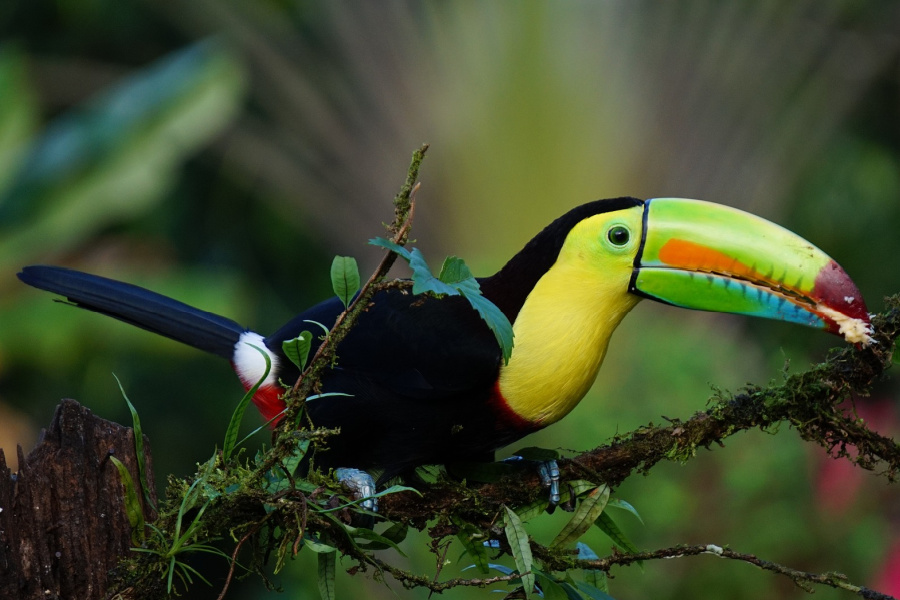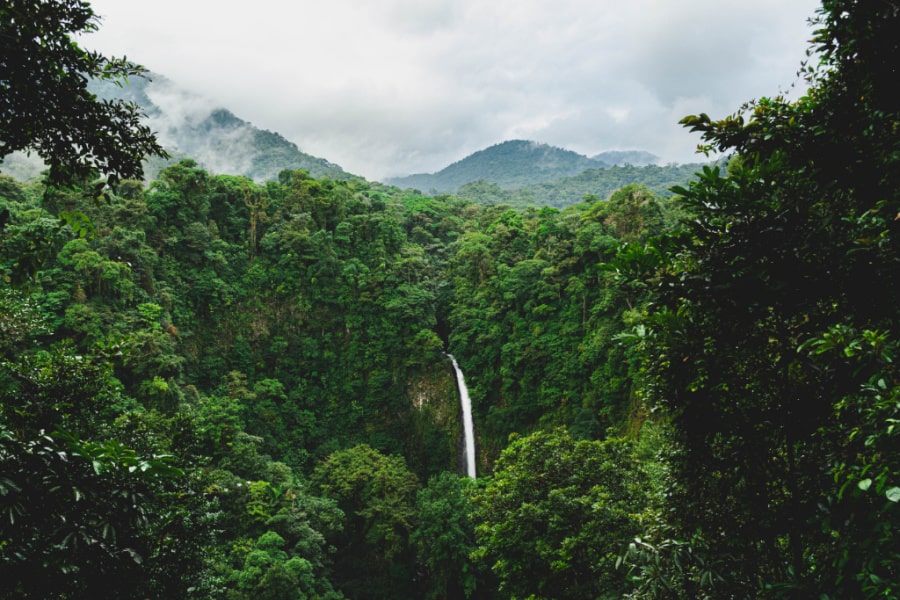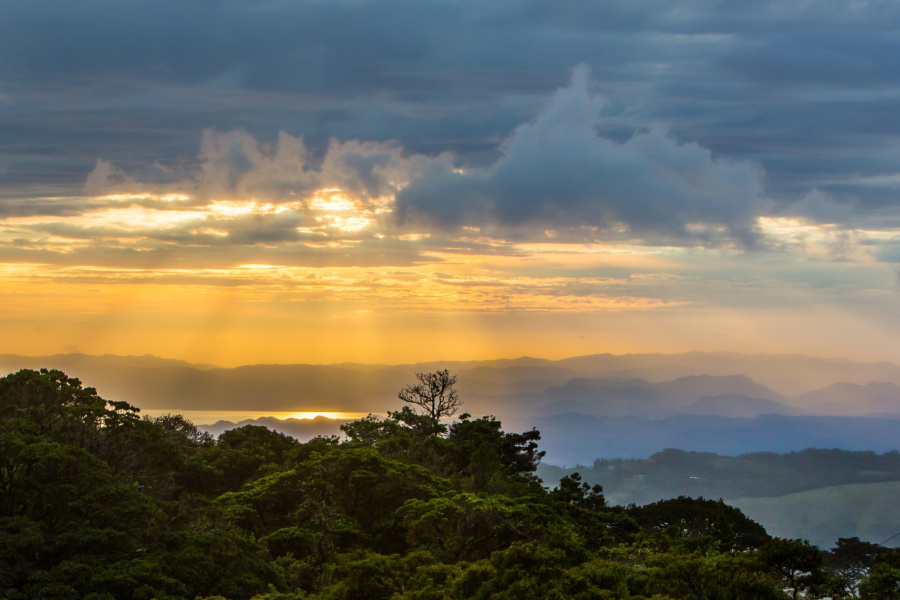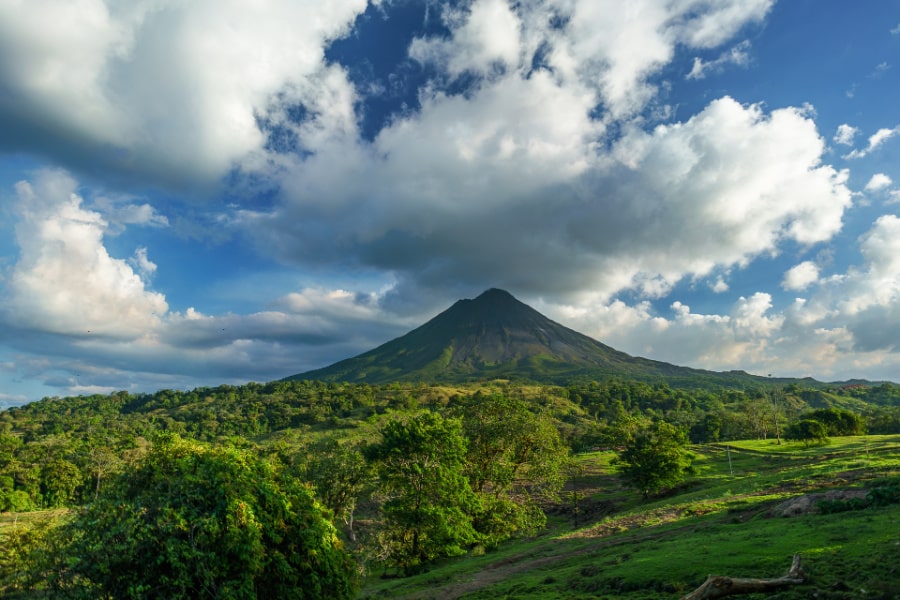Few adventure travel destinations are as hot as Costa Rica, one of the most stable countries in Central America and home to mountains, cloud forests, beaches (on two coasts -- the Pacific and Caribbean), wildlife, and some great eco-lodges as well. While small, Costa Rica packs a punch for travelers and is family-friendly with plenty of “soft adventure” opportunities.
Costa Rica is a leading contender for the title of
eco-tourism capital of the Americas, and for good reason: not only does it have mountains, forests, rivers, coastlines, wildlife, and more, but it has adopted sustainable development as its ruling principle. Costa Rica is set to become the world’s first carbon-neutral country, with virtually all of its energy derived from geothermal, hydroelectric, and wind power.
Costa Rica is a natural wonderland that in its own way is as unusual as the
Galapagos or
Madagascar. Though smaller than the U.S. state of West Virginia, Costa Rica harbors enormous biological diversity. The country contains nearly four percent of all the species on the planet -- more than 500,000 different plants and animals -- well over 100 times what its landmass would normally be expected to hold.
Switzerland of Central America
A full quarter of Costa Rica’s land is devoted to national parks, and it’s long been known as the Switzerland of Central America because of its peaceful, democratic, politically neutral government (not to mention its often dramatic scenery). Compared to much of the Americas, it has a high literacy rate, a high standard of living, and a high life expectancy for its people (health care is free). The country doesn’t even have a military.
That doesn’t mean everything is Swiss-neat and efficient: the roads are often in disrepair and government and private corruption are periodic threats. Nor are things as neat or on-time here as they are in Switzerland; ticos and ticas (Costa Rican men and women) can be quite casual about tidiness and punctuality.
Friendly, Eco-Minded People
But the people are incredibly friendly, so much so that saying “no” to anything is considered the height of rudeness (though they have developed dozens of ways of couching their “no’s” in various shades of “si.”)
Meanwhile, the prevailing eco-mindedness of the government and people has resulted in significant reforestation projects on once depleted lands, and the benefits of a thriving eco-tourism business to the economy have largely trumped the old practices of illegal logging, burning, and poaching.
From Coast to Coast
Costa Rica features two separate coastlines -- the Caribbean and the Pacific -- that are just 185 miles away at its widest point, making it possible to swim on both coasts in the same day. The regional terrain and climate can differ dramatically, and throughout the country you’ll find a remarkable mix of lush jungle rainforests; cool, verdant cloud forests; volcanic mountains and deep valleys; wild rivers; and arid, flat desert-like sections as well. All have their own separate kind of beauty and appeal, making it a one-country atlas. A good tour guide can help you turn the pages efficiently.
Attractions include visiting coastal beaches, surfing, whitewater rafting, hiking through rain- and cloud forests, birding trips and other wildlife viewing, driving up volcanoes and coastal cliffs for memorable scenic views, gazing at wildflowers, touring towns and cities (such as the capital, San Jose), and staying in eco-lodges or taking a break from all the action at posh resorts.
Wildlife in Costa Rica
Costa Rica is best known for birding (see below), but don’t overlook the country’s other wildlife.
Rainforest walks will yield views – or certainly the chattering and howling sounds – of monkeys. Howler monkeys – which you’ll almost certainly hear before seeing – are at the top of the “wow” list. Spider and capuchin monkeys also swing through the rainforest canopy, and you may sight coatis – furry, ring-tailed, raccoon-like creatures.
Sloths are slow moving but hard to spot while sleeping up in the trees, and they only come down to the ground once a week. The Aviarios Sloth Sanctuary on the Caribbean coast is a good place to try.
If you take to Costa Rica’s rivers, you may spot crocodiles and caimans, along with plenty of waterfowl.
Birding in Costa Rica
Costa Rica is renowned as one of the richest birding destinations on the planet.
Spotting the rare and brilliantly colored resplendent quetzal is the top prize, but the many hundreds of species found in the forests and wetlands here include scarlet macaws, toucans, trogons, motmots, grey-necked wood rails, snowy-bellied hummingbirds, brown-billed scythebills, golden hooded tanagers, roseate spoonbills, kingfishers, jabiru storks,grebes and herons.
Top birding spots are:
-
The Cerro de la Muerte (your best chance for spotting a resplendent quetzal)
-
La Selva Biological Station (300 species near Puerto Viejo)
- Monteverde Cloud Forest (another chance to spot a quetzal as well as hearing the “chimes” of bellbirds)
-
Arenal National Park (more than 400 species, including umbrella birds and tiger herons)
-
Tortuguero National Park (water birds and other species along the northern Caribbean coast)
-
The Sarapiqui Eco Observatory (hundreds of species in the town of La Virgen)
-
Wilson Botanical Gardens (hummingbirds and tanagers are among the many species attracted to the tropical plants and flowers here, near the town of Golfito)
-
Carara Biological Reserve (along the Pacific Coast, this is the best place for spotting scarlet macaws)
Even if you aren’t a dedicated birder, a walk in the rainforests will produce close-up sightings of iridescent butterflies and the sounds of bird calls so clear and harmonious that you’ll want to record them for your ringtones – or at least to play for relaxation when you return home.
Food in Costa Rica
As in much of Latin America, Costa Rican cuisine relies heavily on rice and beans, but there’s much more to Tico food than that traditional combo. You’ll find Caribbean, Spanish, and other influences, as well as plenty of fresh fruits and vegetables.
Many meals start with ceviche, raw diced fish (such as sea bass) marinated in lime juice with diced celery, onions, peppers, cilantro and other vegetables and herbs.
Some top foods to try in Costa Rica include:
-
Casado - the most common everyday dish, supplements the rice and beans with grilled or sautéed steak, chicken, pork or fish, as well as a cabbage salad, fried plantains, and sautéed onions. You might even find French fries, an egg, or picadillos (chopped vegetables) on the same plate.
-
Gallo pinto - the most typical breakfast plate, is similar in some ways to casado – rice and beans mixed together and served with chopped beef, eggs, salsa, and tortillas. (Note: There’s also a Caribbean version of mixed rice and beans that incorporates red beans, coconut milk, and chilies).
-
Sopa de Mariscos - a popular seafood soup – often combining shrimp, mussels, clams or squid with fish and chopped vegetables simmered in a tomato broth. (A Caribbean version substitutes coconut milk for the tomato broth.
-
Empanadas – fried dough stuffed with fillings such as cheese or potatoes -- are a popular snack.
You can wash any of these down with the ever-present local coffee, beer, horchata (a sweet milk drink), fruit juices (refrescos or naturales), granizados (a version of shave ice), or coconut water.
Eco Tours in Costa Rica
Costa Rica helped pioneer the concept of Eco Tourism as we know it back in the 1980s.
It started with a modest rainforest birding lodge near San Jose, and has developed over the past three decades into a key part of the country‘s tourist industry.
With an enlightened government, sizable national parklands, and an unrivaled number of animal and plant species for its size, Costa Rica has proved ideal ground for promoting sustainable tourism.
This eco-mindedness has resulted in significant reforestation projects on once depleted lands, while the benefits of a thriving eco-tourism business to the economy have largely trumped the old practices of illegal logging, burning, and poaching.
A genuine eco tour doesn’t just give a wink and a nod to nature and the environment, but takes all possible steps to ensure that its guests leave the wildlife and surroundings at least as well off as when they arrived.
This means, of course, taking only photos and leaving only footprints, but also may mean giving back to the local communities in some fashion. For example, a good eco tour agency might donate a portion of proceeds from every tour to community schools, hospitals, or conservation projects.
Eco tours often feature stays in eco lodges, which are used as bases for taking guided rainforest walks, nature hikes, and small boat trips along inland waterways. Meals are usually hearty and based on sustainable foods; recycled water is used for showering; and group camaraderie tends to be high even when it rains.
The accommodations in Costa Rica’s eco lodges may range from rustic to luxurious, but the one thing they share is a deep commitment to sustaining the local environment.
Things Not to Miss
Among must-see’s and do’s are the Monteverde cloud forests, situated in the central part of the country amidst a number of volcanoes; it’s said to contain nearly as many animal and plant species as the United States and Canada combined.
Besides waterfalls, panoramic views of both coasts and little mountain towns, you’ll have the opportunity (albeit chancy) of spotting the elusive red-and-green resplendent Quetzal, which tops many a birder’s life list.
The
Arenal Volcano is the dramatic centerpiece of a national park where you can go hiking or kayaking on a lake, visit hot springs and waterfalls, or go ziplining over the forest canopy (keeping in mind that the volcano is active). Whitewater rafting on one of several rivers is another priority for adventurous travelers -- try the class III-IV Pacuare River in the central part of the country.
All these and much more are best seen on guided tours, so let Stride be your guide through the maze of activities in the Switzerland of Central America.
Travel to Costa Rica: Practicalities & Logistics
- Capital city: San José
- Dialing code: +506
- Language: Spanish
- Currency: CRC
Before you Go
Costa Rica is one of the world’s foremost destinations for adventure travel. Given this, extra safety precautions should be taken, and definitely make sure you’re healthy and alert before your trip.
If you suffer from a fear of heights or vertigo and plan on participating in the many Costa Rica activities that take place high in the rainforest canopy, definitely consult a professional first.
Visa
For US Travelers, a visa is not required for travel to Costa Rica. Your passport must be valid at least one day after your travel in Costa Rica, and you must have a ticket for exiting the country, whether home or to another country.
Travelers from the UK do not require a visa, but must stay in the country no longer than 90 days and be able to provide evidence of your departure date and country traveling to. This is the same for Australian and Canadian travelers.
Safety
Costa Rica is perhaps one of the more westernized Central American countries - a factor of it’s appeal to tourists and adventure travelers.
When it comes to adventure travel, always be careful and follow instructions closely. Because Costa Rica is so popular for adventure activities, you don’t really need to worry about a lack of Westernized safety measures, but there is always risk involved.
For traveling to Costa Rica, it’s important to add a few things to your travel insurance policy. Ensure that your travel insurance covers adventure sports as well as natural disasters. Costa Rica’s weather can be extreme and unpredictable!


